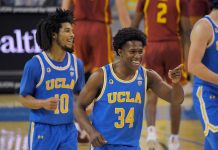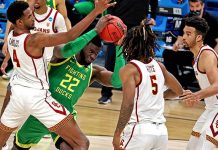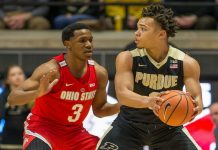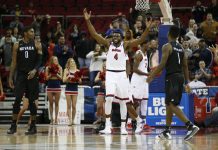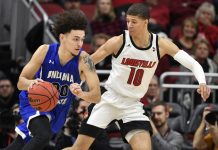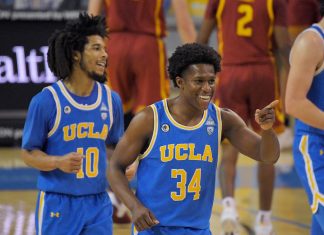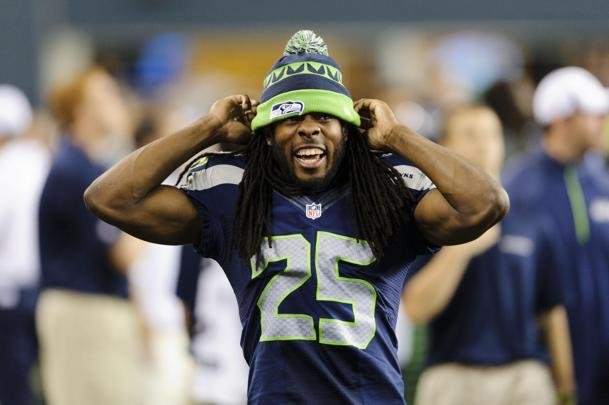Freshman James Wiseman has withdrawn his lawsuit against the NCAA and Memphis, and the university has declared him ineligible while officials work to resolve the case.
”The University supports the decision, as it believes it is in James’ and the men’s basketball team’s best interests to resolve his eligibility issue expeditiously through the NCAA process,” Memphis said in a statement released Thursday morning.
The freshman’s attorneys announced on Twitter that Wiseman withdrew his lawsuit Thursday morning saying the legal action was not helping the two sides reach a resolution.
”It has become clear to Mr. Wiseman that the lawsuit he filed last week has become an impediment to the University of Memphis in its efforts to reach a fair and equitable resolution with the NCAA concerning his eligibility status. Therefore, Mr. Wiseman advised his legal team that he wished to withdraw his lawsuit,” the law firm of Ballin, Ballin and Fishman wrote.
Memphis officials say they are immediately applying for Wiseman to be reinstated. Until then, Wiseman will be held out of games but can practice with the No. 13 Tigers (2-1).
”The NCAA is fully aware of the unique nature and challenges in this particular case, and the University is confident that the NCAA will render a fair and equitable decision consistent with its mission,” officials said in the statement.
It was a dramatic turn of events in Wiseman’s battle to regain his eligibility after the NCAA sidelined him for receiving impermissible benefits from Penny Hardaway, before the former NBA star became Memphis’ coach.
Wiseman had obtained a temporary restraining order and had played in Memphis’ first three games, two after order was granted Nov. 8. The 7-foot-1 center is Memphis’ leading scorer, averaging 19.7 points and 10.7 rebounds.
NCAA spokeswoman Stacey Osburn declined to comment Thursday when contacted by The Associated Press about Wiseman’s case. The NCAA made it clear hours after the temporary restraining order was granted that with Wiseman on the court that the association had told Memphis the freshman was ”likely ineligible.”
”The university chose to play him and ultimately is responsible for ensuring its student-athletes are eligible to play,” the NCAA wrote on Twitter.
Wiseman’s lawsuit stated the NCAA declared the center eligible in May after months of investigation and that Hardaway disclosed he gave $11,500 in moving expenses to help the player’s family move from Nashville to Memphis in the summer of 2017 – before Wiseman played at East High School as a junior for Hardaway. The university said in a statement that Wiseman didn’t know about the money given to his family.
Hardaway was hired by his alma mater as head coach in March 2018. Wiseman committed to Memphis and Hardaway in November 2018 as the gem in the nation’s No. 1 recruiting class for Hardaway.
Wiseman’s attorneys had said the NCAA sees Wiseman now as ineligible because Hardaway is considered a booster after he made a $1 million donation to the university’s Sports Hall of Fame in 2008. That would make Hardaway’s 2017 gift to the player’s family impermissible under guidelines for boosters.
—
AP Basketball Writer Aaron Beard contributed to this report.
—
More AP college basketball: https://apnews.com/Collegebasketball and https://twitter.com/AP-Top25
25% Bonus via Western Union


